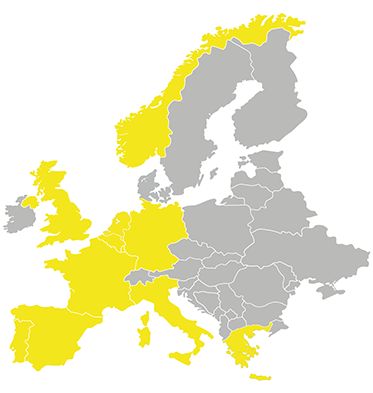The efficient introduction of oxygen functionalities into raw materials is a key chemical transformation. In the pharma sectors, the highest added value in this bio-oxidation process is often provided by an enzyme-catalysed step. The high price of the pharmaceutical end product compensates for the less than optimal efficiency of this process. The ROBOX project aims to demonstrate that similar and cheaper bio-oxidation processes can be used in other sectors, where prices of end products are lower. PNO Consultants helps maximize the impact of the ROBOX innovation and make it market-ready.
Overview of the ROBOX project
Oxygen functionalities are key functional groups in many of today’s chemicals and materials. Introducing oxygen functionalities into raw materials can chemically transform them into useful materials, such as alcohol. Innovative bio-catalytic oxidation routes using molecular oxygen (from air) under benign and mild (pH) conditions, such as ambient temperature and pressure, can greatly improve the sustainability and economics of these processes. However, the enzyme-catalysed step of the process offers a less than optimal enzyme production and has limitations in its catalytic efficiency. That makes the process too expensive for many industries except pharma, where the price of end products is high (over 1000 euro per kilogram). ROBOX introduces bio-oxidation processes that can be used in wider industrial application.
Objectives of the project: introduce bio-oxidation process
- ROBOX wants to achieve the widening of industrial application of enzymatic bio-oxidation processes to chemical markets, which have larger volume but lower price. To do that, the project will demonstrate the techno-economic viability of bio-transformations of four types of robust oxidative enzymes. For these enzymes, target reactions have already been validated on lab-scale in pharma, nutrition, fine & specialty chemicals and materials applications:
- P450 monooxygenases (P450s)
- Baeyer-Villiger MonoOxygenase (BVMOs)
- Alcohol DeHydrogenase (ADH)
- Alcohol OXidase (AOX)
- The introduction of ROBOX bio-oxidation processes is expected to bring substantial reductions in cost (up to -50%), energy use (-60%), chemicals (-16%) and GHG-emissions.
Our involvement in the ROBOX project
Our main responsibility in the ROBOX project is to perform a stakeholder analysis to identify a relevant audience of stakeholders, policy makers, researchers and investors. This will help maximise the impact of the ROBOX project, paving the way for the market uptake of the proposed technology. From our analysis, we build a targeted set of communication and dissemination actions.





